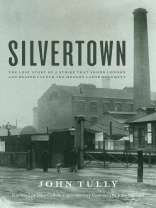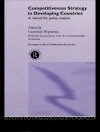In 1889, Samuel Winkworth Silver’s rubber and electrical factory
was the site of a massive worker revolt that upended the London
industrial district which bore his name: Silvertown. Once referred
to as the “Abyss” by Jack London, Silvertown was notorious for
oppressive working conditions and the relentless grind of production
suffered by its largely unorganized, unskilled workers. These
workers, fed-up with their lot and long ignored by traditional craft
unions, aligned themselves with the socialist-led “New Unionism”
movement. Their ensuing strike paralyzed Silvertown for three
months. The strike leaders— including Tom Mann, Ben Tillett,
Eleanor Marx, and Will Thorne—and many workers viewed the
trade union struggle as part of a bigger fight for a “co-operative
commonwealth.” With this goal in mind, they shut down Silvertown
and, in the process, helped to launch a more radical, modern
labor movement.
Historian and novelist John Tully, author of the monumental social
history of the rubber industry The Devil’s Milk, tells the story
of the Silvertown strike in vivid prose. He rescues the uprising—
overshadowed by other strikes during this period—from relative
obscurity and argues for its significance to both the labor and socialist
movements. And, perhaps most importantly, Tully presents
the Silvertown Strike as a source of inspiration for today’s workers,
in London and around the world, who continue to struggle for better
workplaces and the vision of a “co-operative commonwealth.”
Circa l’autore
Dr. John Tully is lecturer in politics and internationalstudies at Victoria University in Melbourne Australia. He is author of four books: Cambodia Under the Tricolour: King Sisowath and the ‘Mission Civilisatrice, 1904–1927; France on the Mekong: A History of the Protectorate in Cambodia, 1863–1953; A Short History of Cambodia: From Empire to Survival; and a novel, Death Is the Cool Night.












